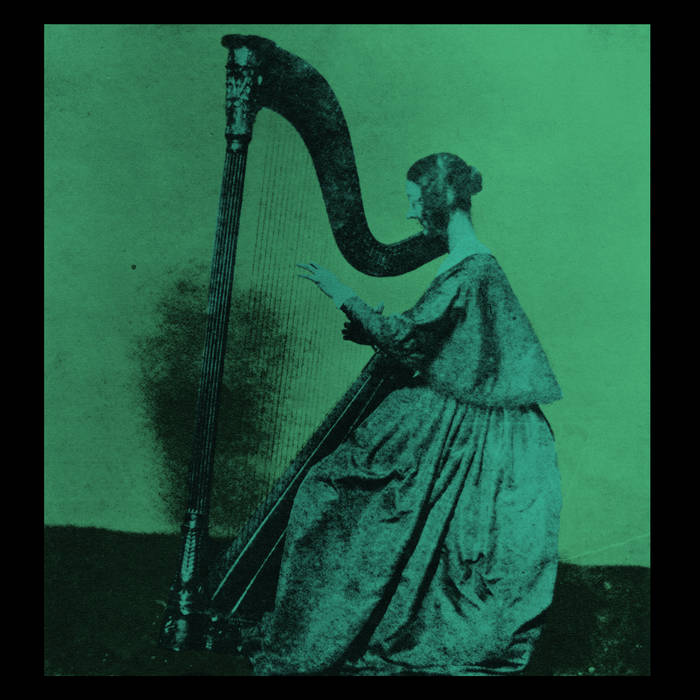Right from the first track, TV Girl’s much-awaited fourth album “Grapes Upon the Vine” throws a curveball. After three albums of synthy, mellow music imbued with oldie samples, TV Girl turns up the energy and comes out of left field with gospel samples and a cleaner, piano-heavy sound.
The first track, “I’ll Be Faithful,” highlights this sharply. While Brad Petering’s vocals are, as ever, slightly detached and supremely reverb-y, hearty piano sounds carry the song, along with a headbanging beat that strings the track along through samples of gospel singers.
The lyrics also depart from the band’s hypnotic, prior entries. The lyrics on “Grapes Upon the Vine” take an existential focus, talking about eternity and love, heaven and hell, life and death. While there was always an existential aspect to TV Girl’s repertoire, especially on their third album, “Death of a Party Girl,” “Grapes Upon the Vine” makes it a central focus.
The album also takes on a newly honest tone. In prior albums, ennui and melancholic vibes came from a feeling like detachment — of a lurid moment of self-awareness in the middle of a party — here it sets out with a more grounded approach, asking why we are here and trying to append a real, honest purpose to a driftless life. TV Girl’s previous music had an unmistakably critical view on LA’s sex and drug-obsessed world, from the point of view of someone who partakes in it but remains somewhat apart from it. “Grapes Upon the Vine” instead looks in a mirror.
The recent meteoric rise of several tracks in TV Girl’s several-year-old catalog owes itself to TikTok virality, something band members themselves have acknowledged. They also seem to have chafed against that reality. Instead of harnessing their newfound renown, they still retain an enigmatic and sparse online presence, leaving ironic tweets (including consistently retweeting uses of the term “tv girl” completely unrelated to the band) and not much more.
Changing their sound for their first album since becoming famous on TikTok certainly seems like an adverse reaction to that fame, but abandoning their swirling, hypnotic sounds for a fresh take has done them well in this album. Much of TV Girl’s image comes from a heavy dose of irony, so abandoning their previous sound and aesthetic for a completely new musical style and making the hard left turn to sincerity to get away from TikTok fame makes more sense than it may at first glance: it is possibly the most irony-riddled thing they could have done.
The records feel like a modern take on something Moby or Fatboy Slim might have done in the 90s, with a lot of songs from “Grapes Upon the Vine” reminiscent of “Why Does My Heart Feel So Bad,” “Flower” or “Praise You,” taking the gospel influences and much of the general feel from those records, while employing a much less polished indie production.
The presentation as a whole undertakes a jarring but welcome shift in both style and tone, and Petering takes very few risks with his vocal performance. Though that could have been predicted from their previous works, it was one of the bigger disappointments from the album. The vocals did have one consistent standout theme: Petering’s use of rap-esque vocal sequences delivering stream-of-consciousness stanzas, most notably in the bridges of “I’ll Be Faithful” and “Fire,” and throughout “One of These Mornings.” In these sections, Petering’s vocals skip mesmerizingly to uptempo instrumentation with a spoken word-like flow, daisy chaining together some of the best moments on the album.
The album has a couple misses in the later tracks. My personal least favorite was “Big Black Void,” a song that deserves some praise for taking steps out of the band’s comfort zone but executes that departure quite clumsily. The attempts on “Big Black Void” to weave typical TV Girl cynicism into a call-and-response spiritual come off as half-baked. On the other side of the spectrum, “99.5” and the title song were merely forgettable. Although they’re both decent tracks, they sound like underwhelming returns to the sounds of albums prior, making them disappointing in an album that spends so much of its time mixing up TV Girl’s established sound.
Another prominent aspect from the album is its self-reflective quality. If the detachment from party culture found within prior entries from TV Girl could be framed as a sort of “I’m not a part of this” denial, “Grapes Upon the Vine” provides a kind of acceptance, instead saying something like “this is who I am, but that’s okay.” “Hang On,” the second track from the album, explores the ideas of trying to find hope in a life that feels like it’s slipping away. It comes close to declaring that search pointless, but steps back from that abyss, retaining an optimistic nugget in one of the album’s bleakest songs.
“The Night Time,” my favorite track from the album, epitomizes the attitude of self-reflection, and provides something of a resolution to the existential despair of “Hang On.” While a rolling, mostly triumphant-sounding piano drives the song’s momentum alongside soaring gospel vocals from a sample, Petering sings “the night time is for fuckups … the night belongs to us.” After the fruitless searching on “Hang On,” “The Night Time” finds solace for someone with a messed up life. On other albums, the content may have addressed those feelings but probably would have brushed them off. These two tracks lean in with an emotional vulnerability not seen elsewhere in TV Girl’s catalog. Instead of a dry, self-referential, self-deprecating sarcasm, these songs carry a reflective, honest and cannily self aware tune that reverberates through the album.
“Heaven Over Our Heads” is another essential track from “Grapes Upon the Vine,” capping off TV Girl’s first effort by encapsulating all the album’s hopes and fears and nihilistic dreads. “Heaven” is buoyed by some of the best sampling on the album, even standing with “Lover’s Rock” as some of the best sampling in TV Girl’s entire discography.
On that track, gospel singers make up the de facto instrumentation, and crescendo between phrases in the verse into big, inspiring moments of sound that provide a necessary foil to the existentially melancholic lyrics and that are some of the best moments on any track in the album. The lyrics themselves on “Heaven” are also some of the most affecting out of “Grapes,” and the subject matter, which concerns the singer looking back at his life and his lost opportunities and making some sort of peace with that, fit particularly well with Petering’s vocal performance on the track. Petering takes some of his biggest — albeit hesitant — forays outside of his comfortable singing range, but just as soon as he ventures out into the higher parts of his vocal range, it resolves right back down. However, each time he does so, sampled vocal swells come in to take over the energy of the song. He does this with particular effect on the line “… it’s such a short time you were here, and such a long time you’ll be gone, scattered to the wind,” at the end of the second verse, serving up a true gut punch, right at the end of the album.
The reception for this album has been somewhat contentious. Enough fans were outspokenly disappointed with the new record, likely due to the shift in tone that the band’s twitter took the time to comment on the controversy, wry as ever. They surely knew they would alienate some of their newfound audience when they laid much of their TikTok-conducive sounds to rest, leaving them behind in the 2010s — and they went ahead with the change anyway. “Grapes upon the Vine” was a risk, and took real guts to make. In a pop culture dominated by sequels and remakes, where playing it safe is so often rewarded, and where the TikTok-based incentive to build songs around a single 30-second catchy idea shapes songwriting, TV Girl’s artistic venture into new waters should be applauded.








